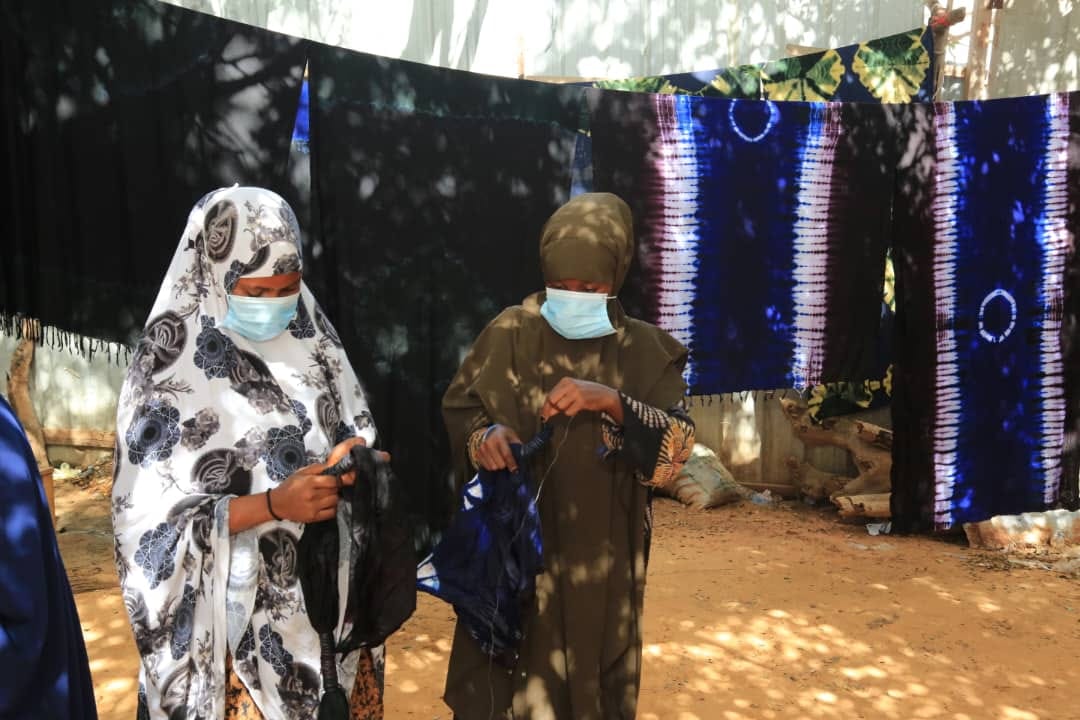
Somali woman's journey to surviving forced marriage and reclaiming freedom
|
18 February 2024 14:17

By - SHUKRI ADAN
MOGADISHU (KAAB TV) – In the rural heartlands of central Somalia, Hawo Ahmed Elmi’s story begins like many others, yet her journey is a testament to the resilience of the human spirit against the oppressive chains of early marriage.
At just 14 years old, Hawo, then a resident of a remote village, found herself betrothed to a 50-year-old man, a friend and relative of her own father. The exchange of camels and money sealed her fate, as she was thrust into a union devoid of consent or choice.
The grim reality faced by Hawo is echoed in the findings of the inaugural Somalia Health Demographic Survey of 2020, revealing a staggering 16% of ever-married women aged 20-49 were wed before the age of 15, with 34% married off by the tender age of 18. Such statistics cast a shadow over Somalia, placing it among the most challenging environments for young girls.
The escalating prevalence of child marriage in the Horn of Africa, exacerbated by the region’s harshest drought in four decades, adds fuel to this dire situation. For Hawo, the nightmare began as her husband’s abusive tendencies surfaced early in their marriage. Yet, trapped in a cycle of violence, she remained silent, fearing repercussions for her family’s honor and livelihood.
"Whenever I dared to voice my suffering to my father, I was met with blame and admonition to endure my husband’s tyranny,” Hawo recounts, shedding light on the pervasive societal pressures that bind women to their oppressive circumstances.
With time, Hawo’s plight deepened as she became a mother, her first pregnancy marred by life-threatening anemia – a condition arising from not having enough healthy red blood cells or hemoglobin – exacerbated by the absence of adequate medical care in her village.
Enduring a treacherous journey to Mogadishu for medical intervention, she faced the stark reality of her vulnerability as a young bride.
"I gave birth to my firstborn child in that situation,” she said.
Five years into the tumultuous union, Hawo found the courage to seek divorce, only to be met with further injustice as her husband demanded the return of the bride price, leaving her powerless and estranged from her children.
The pain of separation, compounded by societal stigma, serves as a stark reminder of the enduring scars of early marriage.
"Just think about how painful it is when a mother is denied the right to see or meet her children,” she says pushing her tears.
Luul Isaq, known as Halgan, an advocate for women’s rights, echoes Hawo’s plea for change, urging parents to safeguard their daughters from the perils of forced marriage.
Drawing from past tragedies, she implores Somali society to recognize the inherent rights of girls to education and autonomy in choosing their life partners.
"I urge all Somali parents to refrain from imposing marriages upon their daughters, marriages that could shatter their lives. Your daughters deserve the freedom to pursue education and select their life partners autonomously. Coercing them into marriage constitutes a blatant infringement of their fundamental rights,” she emphasized.
_
Shukri Adan is a member of women journalists network covering women rights issues in Somalia. She is a recent beneficiary of SJS journalists' training program supported by Canadian Fund for Local Initiatives.
Shukri Adan is a member of women journalists network covering women rights issues in Somalia. She is a recent beneficiary of SJS journalists' training program supported by Canadian Fund for Local Initiatives.
Leave a comment
- Popular
- Rated
- Commented
04/11/2021 - 11:05:02
28/05/2024 - 15:44:10
01/03/2021 - 09:00:37
Opinions
12/06/2025 - 22:33:40
18/05/2025 - 16:26:37
Politics
05/06/2025 - 13:42:50
Terror Watch
07/06/2025 - 21:36:45
Press Releases
12/06/2025 - 22:36:39
05/06/2025 - 12:21:21
 0
0 




































Somali woman's journey to surviving forced marriage and reclaiming freedom
By - SHUKRI ADAN